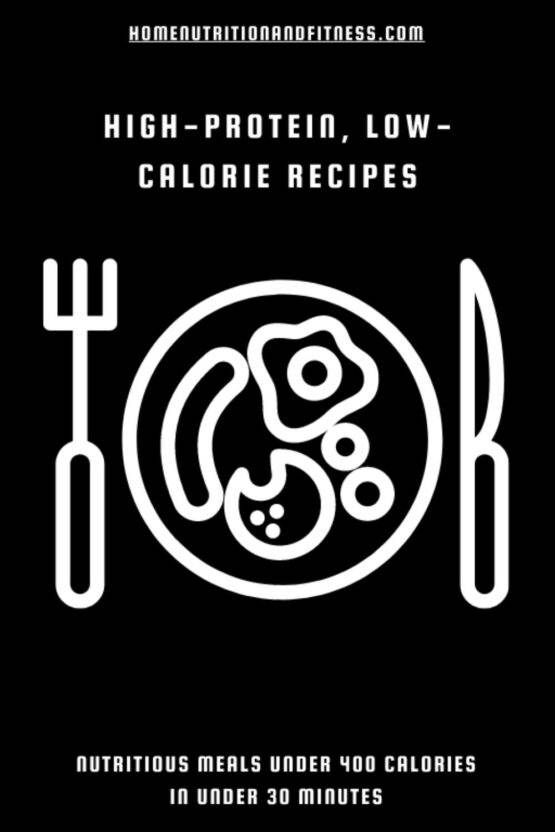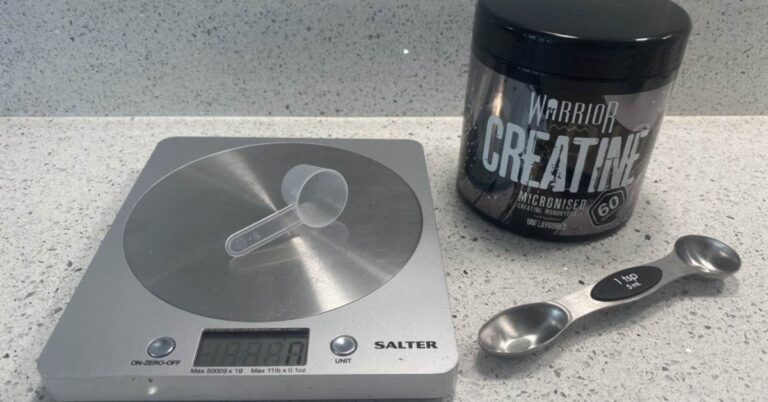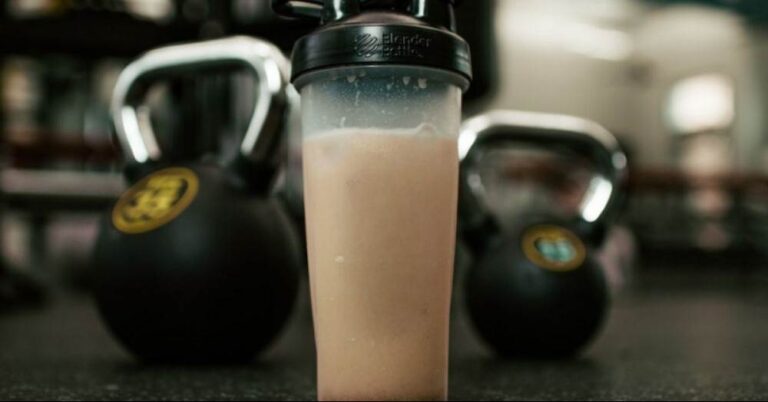Have you ever taken pre-workout and experienced that tingling sensation afterwards? How much did you freak out the first time around? If you did then you’re not alone.
It’s actually pretty common for people to think that the tingling sensation, known as paraesthesia, is a sign that pre-workout is dangerous.
In reality, pre-workout supplements, when used properly and in recommended amounts, can provide an energy boost, improve focus and give an enhanced exercise performance during their workout. The tingling sensation often misunderstood as an overdose of pre-workout is actually a harmless side-effect caused by the additional intake of beta-alanine and niacin (vitamin B3), which are both present in pre-workout supplements.
So, why then, do you need to be careful about taking too much pre-workout? There are a few reasons but a simple answer is that scoop sizes, ingredients and your own tolerances to the ingredients can vary by brand. This makes it difficult to know exactly how much of each ingredient you are consuming.
So how much is too much when it comes to your pre-workout? Let’s have a look.
How many scoops of pre-workout to use depends mainly on the caffeine content of your powder. Caffeine in pre-workouts can vary from 100mg to 300 mg+. It’s easy to consume far more than the recommended upper limit of 400mg of caffeine with just 2 scoops of moderate caffeine pre-workout. Add in the caffeine from your diet too and you’re in the realm of overdosing and experiencing side effects like jitters, anxiety and palpitations. Always read the label to understand just how much caffeine is in a scoop and manage your daily intake accordingly.
Affiliate Disclosure: Please note that some of the links on this page may be affiliate links. This means that if you click on these links and make a purchase, we may earn a small commission, at no additional cost to you. As an Amazon Associate, we earn from qualifying purchases. We only recommend products and services that we believe in and use ourselves. Your support through these links helps us keep the content coming. Thank you for your support!
What Is In a Scoop of Pre-Workout?
Pre-workout powders usually contain a blend of different ingredients. The actual ingredients and the amounts of each can vary depending on the brand you’re using.
Some key pre-workout ingredients include:
- Caffeine – The main stimulant in pre-workout
- Creatine – Supports muscle strength and power output
- Citrulline – Enhances blood flow and oxygen delivery for endurance
- Beta-Alanine – Reduces lactic acid build-up allowing for greater endurance
- Branch Chain Amino Acids (BCAAs) – Aids muscle protein synthesis and delays fatigue
- Vitamins & minerals – Improve energy metabolism
- Carbohydrates – Fuel for your workout
The 3 most common ingredients found in pre-workout powders are caffeine, citrulline and beta-alanine. Each brand contains varying amounts of each ingredient.
In addition, each brand will have a different recommended dose and a scoop size anywhere between 5-25 grams per scoop.
What this means is that to answer the question of ‘How Many Scoops of Pre-Workout Is Too Much’, you can’t use the number of scoops as an effective measurement. Sounds ridiculous but you have to look at the actual dose of key ingredients like caffeine in each recommended dose or scoop to decide how much is too much.
Pre-Workout Supplements: How To PROPERLY Use It To Boost Performance
Why Do Pre-Workout Scoop Sizes Vary?
This boils down to a few reasons making it difficult to pinpoint just how many scoops of pre-workout is too much.
Some reasons scoop sizes can differ:
- Varying ingredient concentrations – More potent pre-workouts require smaller scoops. By potent, we’re talking about high caffeine levels.
- Powder density – Denser powders take up less space per scoop.
- Marketing – Bigger scoops can make labels seem more impressive.
Without considering the actual ingredients and dosage, bigger scoops don’t necessarily mean better. A smaller scoop of a concentrated formula can provide the same benefits as 1 larger scoop.
For example, MyProtein has a few pre-workout options. Two of these are THE Pre-Workout and Alpha Pre-Workout. Both are made by the same company but the serving size is different for both and the amount of caffeine and other ingredients is different in each too.
The table below shows just how much variation there is in 2 different pre-workouts from the SAME BRAND. It’s also worth noting that THE Pre-Workout contains 15 ingredients while Alpha Pre-Workout contains just 5.
| Per Serving | Per 100g | |||
| Ingredient | THE Pre-Workout (15.5g) | Alpha Pre-Workout (20g) | THE Pre-Workout | Alpha Pre-Workout |
| L-Citrulline Malate | 4g | 8g | 25.8g | 40g |
| Caffeine | 200mg | 300mg | 1290mg | 1500mg |
| Beta Alanine | 2g | 3.5g | 12.9g | 17.5g |
What Is The Recommended Nutritional Intake of Pre-Workout Ingredients?
Let’s look at the 3 ingredients above. What is the RNI of each?
Citrulline
A non-essential amino acid, meaning it can be produced in small quantities in the body. It is used in the urea cycle which rids the body of harmful compounds such as ammonia. This is excreted by the body in the form of urine.
Citrulline also helps to widen blood vessels allowing for increased blood flow. The process for this involves converting the citrulline to arginine and then to nitric oxide. It is the nitric oxide that relaxes the walls of blood vessels, causing them to vasodilate.
A range of between 3g (minimum effective dose) and 10g (maximum effective dose) per day is recommended.
Beta-Alanine
Beta-alanine is another non-essential amino acid. Along with histidine, it produces carnosine which is stored in the muscles. Carnosine reduces the build-up of lactic acid in the muscles and therefore increases exercise endurance.
There aren’t any upper guidelines for beta-alanine consumption. However, beta-alanine is the ingredient in pre-workout that is responsible for the tingling sensation, or paraesthesia, that you may have felt before. This study states that this can be overcome by reducing single doses down to around 1.6g. Many studies have used a range of 3-6g per day as a base dosage.
Caffeine
A naturally occurring stimulant found mainly in tea and coffee that stimulates the brain and prevents tiredness and fatigue. It is used in soft drinks and energy drinks as well as pre-workout powders to provide a quick energy boost.
The recommendation for caffeine is not to exceed 400mg per day which is roughly the equivalent of 4-5 cups of tea or coffee. The amount of caffeine in pre-workout varies. In the MyProtein examples above, Alpha Pre-Workout has 100mg per serving more than THE Pre-Workout, illustrating this fact well.
Caffeine is probably the most important ingredient to pay attention to when figuring out your ideal pre-workout dose. Too much can definitely cause unpleasant side effects like insomnia and anxiety an in extreme cases even death!
Let’s say you’re using THE Pre-Workout and taking the 15.5g standard dose. That contains half of your recommended dose of caffeine. Then add in your morning coffee, mid-morning coffee, lunch time coffee, mid-afternoon coffee and then another when you get home. That is potentially 600-800mg of caffeine per day. Then counting any soft drinks or energy drinks too, could easily take your consumption to over 1000mg per day which has shown to be toxic and potentially lethal.
How Many Scoops of Pre-Workout to Use – Is It Safe To Double Scoop?
Clearly, it’s pretty important to consider your overall caffeine intake from ALL sources when using pre-workout. Otherwise, it’s easy to overdose unintentionally. It could even be beneficial to look at alternatives to pre-workout to avoid these issues.
So how many scoops of pre-workout can you take without risking going overboard on caffeine? It will depend partly on your diet too but the basic premise would be to base the answer on the caffeine content of your pre-workout.
Here are some general dosage guidelines based on the caffeine content per scoop:
Low Caffeine – Around 100mg per Scoop
Example: LADDER Sport Pre Workout Powder Strawberry Lemonade- $42.99 at Amazon
This pre-workout contains 100mg of caffeine per scoop and is on the lower side of caffeine levels. You COULD take up to 4 scoops without exceeding your caffeine intake provided you aren’t also having tea, coffee, energy drinks or soft drinks. Just because you can doesn’t mean you should though.
Moderate Caffeine – 200mg per scoop
Example: LADDER Sport Pre Workout Powder Tropical Fruit- $42.97 at Amazon
For pre-workouts with 200mg of caffeine per scoop, you’re starting to push things with just 2 scoops. Especially if you’re also getting caffeine from other sources.
Taking 3 or more scoops with this level of caffeine would put you over the daily maximum limit and into potential toxicity when accounting for other caffeine sources.
High Caffeine – 300mg+ per scoop
Example: Animal Fury Pre Workout Powder – $28.95 at Amazon
The example above contains a whopping 350mg of caffeine per scoop!
Without other caffeine sources in your diet, more than one scoop of very high caffeine pre-workout supplements may cause jitters, rapid heartbeat, and anxiety.
Just a single scoop is almost the recommended intake for the day. This is where you need to show some restraint and keep it to the single scoop. Double scooping at this level combined with your caffeine intake from your diet is putting you close to the 10g level that has been reported to be fatal.
What Happens If You Take Too Much Pre-Workout?
Hopefully, you’ve got an idea of how many scoops you can safely take per day. But what happens if you do overdo it? What can you expect?
Here are some potential side effects of too much pre-workout:
- Jitters or tremors
- Rapid heart rate, palpitations
- Insomnia and difficulty sleeping
- Anxiety, restlessness
- Upset stomach, nausea, vomiting
- Headache
- Flushed skin
- High blood pressure
In extreme excess, caffeine and stimulants can even cause seizures, stroke, or heart attacks – although very rare.
If you’re noticing any concerning symptoms like chest pains after taking pre-workout, seek medical attention immediately. Otherwise, the effects should subside within several hours.
A TikToker Chugged 8 Scoops of PreWorkout Supplement. This Is What Happened To His Brain
Can Too Many Scoops of Pre-Workout Kill You?
Realistically, the chances of a fatal overdose just from taking too much pre-workout are extremely slim.
However, caffeine can be deadly in very high amounts. An estimated fatal dose is around 10 grams ingested at one time – roughly 10 cups of coffee one after another! There were approximately 3700 cases of caffeine overdoses in the US in 2016. 12 of which resulted in death.
While it is unlikely, a caffeine overdose is possible if someone with no tolerance takes an excessive amount of a highly caffeinated pre-workout alongside other caffeine-rich food or drinks. Even simple cold and flu medications can contain high levels of caffeine which makes things even more complicated.
Combining multiple stimulants like caffeine, DMAA (an amphetamine derivative), and synephrine also increases risk. If you have existing heart conditions or high blood pressure, it’s wise to be extra cautious with stimulants.
But for most healthy people, the greater risk from overdoing pre-workout is usually feeling lousy – not death.
Long Term Effects Of Pre-Workout
In addition to the immediate impacts, daily pre-workout use over time may also have some negative effects. to be aware of:
- Caffeine dependency – Addiction is a real possibility. How often do you hear people who ‘need’ a coffee? Now imagine having doses that are 2x, 3x, 5x that of a cup of coffee. It can become hard to function without caffeine and you may experience withdrawal symptoms like headaches and low mood if abruptly stopping a high intake.
- Energy ‘Crashes’ – Overstimulating your body regularly can lead to crashes and fatigue between workouts. This then fuels the dependency on caffeine and stimulants.
Key Takeaways
It’s massively important to regulate your pre-workout intake. Of course, this all depends on the caffeine content of your powder and how much caffeine you consume in your diet.
As a general guideline:
- Low caffeine pre-workout (100mg per scoop): 1-4 scoops
- Moderate caffeine pre-workout (200mg per scoop): 1-2 scoops
- High caffeine pre-workout (over 300mg per scoop): Only 1 scoop
Just because you can take more than 1 scoop of pre-workout, doesn’t mean you have to.
The daily recommended upper limit is 400mg of caffeine. Consuming above this level in a short space of time increases the risk of side effects such as anxiety, palpitations, insomnia and high blood pressure. In extreme cases, even death.
You should also be taking into account caffeine from your diet and any medications that you may be taking too as this all adds to the overall total.
For more information on pre-workout and other supplements, see this article – What Are Supplements? (And Why Do They Matter?)
FAQ
Q. What if I have a high caffeine tolerance?
A. Some people may be able to handle slightly higher doses of pre-workout without issue. However, it’s still smart to show restraint and consume below the daily upper limit to allow for other caffeinated foods and drinks. Tolerance can go down surprisingly quickly if you cut back.
Q. Are there pre-workouts without caffeine?
A. Yes, there are non-stimulant, caffeine-free pre-workout products. They use ingredients like citrulline, creatine, and amino acids without stimulants to enhance performance. However, their effects tend to be more subtle.
Q. What about teens using pre-workout?
A. Teens and children should avoid caffeine-containing pre-workout due to greater sensitivity to its effects. Focus on quality nutrition, sleep, training, and lifestyle habits instead at a young age. This article focusing on creatine use in under-18s may also be worth a look.







